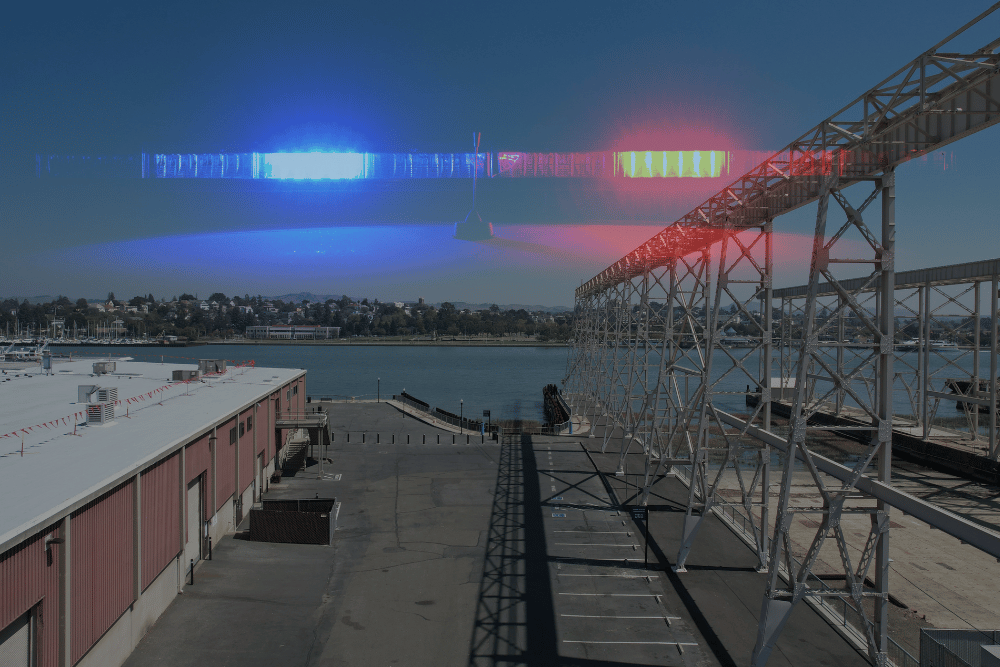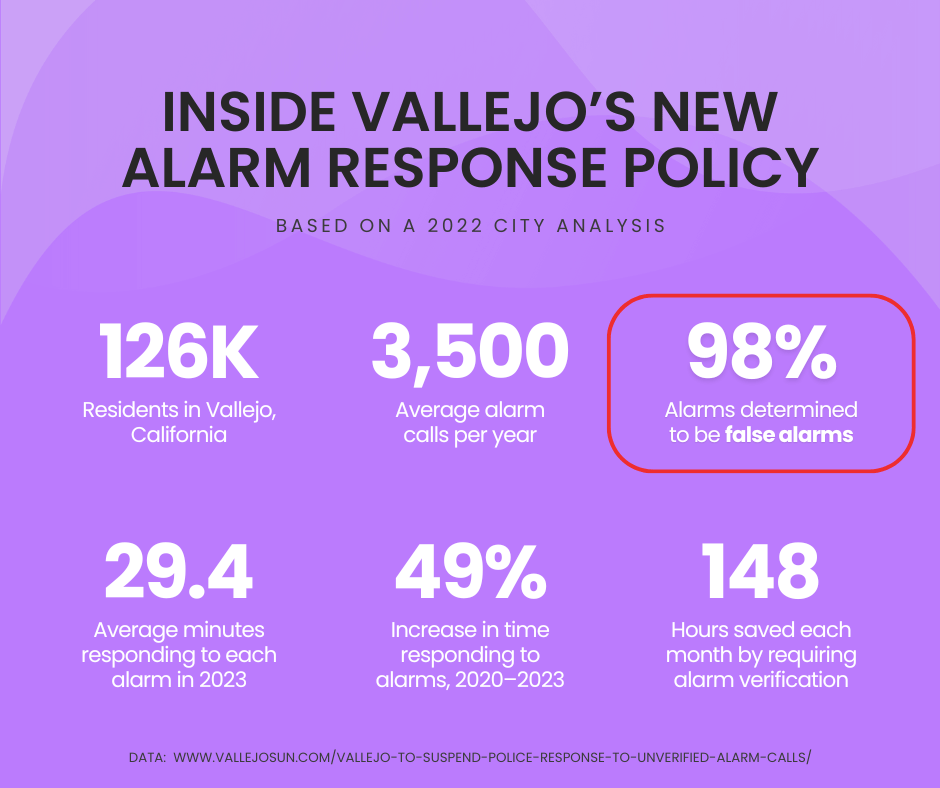Vallejo No Longer Responding to Unverified Alarm Calls

Vallejo, California, is changing its approach to public safety—and, some might argue, not in a positive direction. In response to staffing challenges and excessive false alarms, the city recently implemented a non-response policy for unverified alarm calls.
This makes Vallejo the latest in a country-wide trend of cities that categorically won’t respond to burglar alarms without proof of a crime.
Vallejo’s New Alarm Response Policy
To optimize limited staffing resources and improve efficiency, Vallejo has decided to change how it responds to alarms. Instead of dispatching police to every alarm, the city’s police force will now only respond to verified alarm calls.
Under the new policy, alarm monitoring companies are required to verify the legitimacy of an alarm before requesting police dispatch. This verification process aims to reduce the number of false alarms, which can be a significant drain on police resources.
How significant? The Vallejo Sun reported that from 2020 to 2022, 98% of the city’s alarm calls were ultimately false alarms. Police spent anywhere from 99 to 153 hours per month responding to these alarm calls—a major waste of time when so many turned out to be nothing of consequence.
And police time is hard to come by. Vallejo, like many other cities, has seen its police force shrink over the past few years. When staffing shortages arise, fixing inefficient procedures is a logical solution, especially when tax dollars are on the line.
By requiring verification, Vallejo hopes to ensure that police are responding to genuine emergencies, rather than false alarms.

Non-Response Policies Across the Country
This shift reflects a broader trend in the security industry. Vallejo is one of many cities that have introduced policies that halt or limit law enforcement’s response to unverified alarm calls.
Here are just a few of the major cities with a non-response policy for alarms:
- New York, NY
- Los Angeles, CA
- Chicago, IL
- Houston, TX
- Phoenix, AZ
- Philadelphia, PA
- San Antonio, TX
- San Diego, CA
- Dallas, TX
- San Jose, CA
- Las Vegas, NV
- Salt Lake City, UT
Even cities that will respond charge steep false alarm fines that escalate with each repeat offense. Some cities stop responding after your property has hit a certain number of false alarms. Others won’t respond if you don’t have your permit in order.
Elsewhere, burglar calls are typically a low priority for police forces, who turn their attention to active emergencies. Think of it like triage in a hospital—patients with serious wounds get treatment before patients who might have the flu.
Pay attention over the next few years. These policy shifts have become increasingly common. Vallejo isn’t alone in struggling with limited police resources and excessive false alarms (which make up 98% of alarm calls nationwide, according to the Department of Justice).
A Different Solution for False Alarms
Technology is undeniably an integral part of modern home security. But if Vallejo’s new policy teaches us anything, it’s that we can’t rely on technology alone. We still need real humans “in the loop” to provide situational awareness and assessment.
One solution to the false alarm issue is to blend security technology with human intelligence through audio-video verification. This allows a security monitoring service to verify the cause of an alarm before requesting a police response. Not only does this process help reduce false alarms, but it also provides valuable information to law enforcement, enabling them to respond more effectively.
Deep Sentinel is leading the way by using AI-powered cameras backed by live security monitoring. These systems detect suspicious activity as it unfolds and alert professional guards immediately. The guards can deter suspects themselves or contact the police if needed.
Vallejo’s decision to change its alarm response policy has broader implications for public safety. As cities across the country face budgetary constraints and increasing demands on their resources, the use of verification practices like live video monitoring will become crucial. By embracing these advancements, cities can improve their public safety efforts and create safer communities.
Further Reading
- 10 Major Cities with a Non-Response Policy for Alarms
- False Alarm Fines in Major U.S. Cities
- Why Police Don’t Take Home Alarms Seriously
- Worst Cities for Security System False Alarms
- What Causes False Alarms?
- Are You Being Robbed by Your Home Security Provider?
- The Harsh Reality of Home Security Systems & Their Response Times
- Do Police Respond to All Home Alarm Calls?
- Is Your Security System Crying Wolf? The Trouble with False Alarms
Need a Solution that Prevents Crime?
Deep Sentinel is the only security technology that delivers the experience of a personal guard on every customer’s home and business. Visit deepsentinel.com or call 833-983-6006

